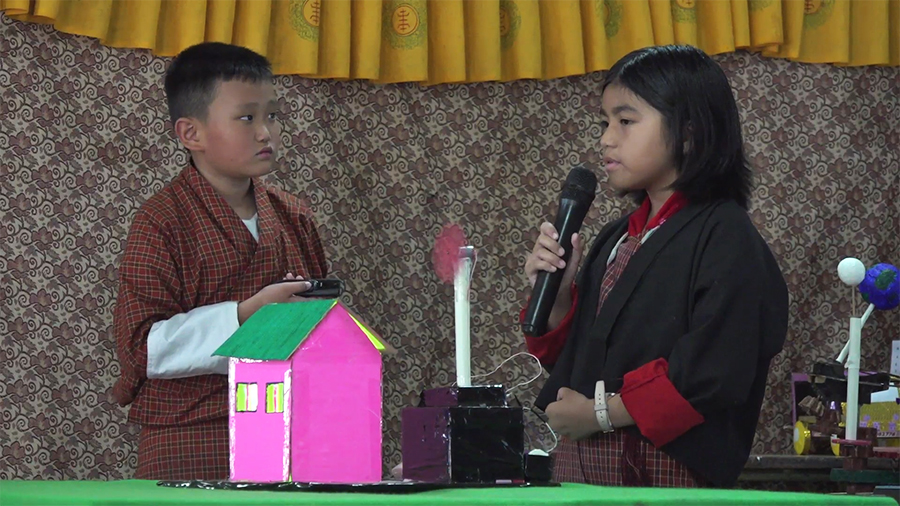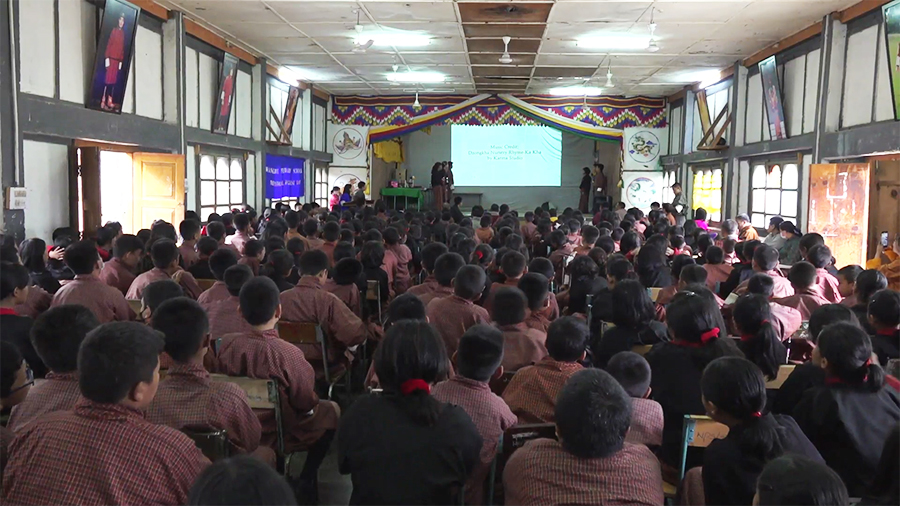
The integration of Science, Technology, Engineering and Mathematics (STEM) curricula has sparked new efforts to understand and implement this approach effectively in schools in the country. Its impact on students’ problem-solving abilities, creativity and critical analysis was evident at the recent Science Innovation Tournament at Wangdue Primary School in Wangdue Phodrang funded by the Ministry of Education and Skills Development.
 From building windmills and solar systems to confidently presenting them to the audience, these class four and six students fearlessly took the stage.
From building windmills and solar systems to confidently presenting them to the audience, these class four and six students fearlessly took the stage.
They showcased their talents without relying on their teacher’s assistance, leaving the teachers amazed by their performance.
“Through such type of event, we can see a lot of positive impacts in the school. Firstly, it is for team building, collaboration and cooperation. Then we are creating some kind of platform where children actually can use their own ideas where they use their own skills and come forward. When they can take part in such type of programme, it empowers them,” said Namgay Dorji, the principal of the school.
Such programmes not only create a platform for students to take ownership of their studies but also cultivate a sense of responsibility for their assignments.
They gain confidence and develop the courage to put in more effort, igniting their passion for learning.
“I learnt about windmills and their benefits to people. For example, some people make table fans at home. Understanding this system has given me an advantage and I am confident that I can excel in exams when it comes to this topic,” said Yeshey Tshering, a student.
“We presented about the circulatory system, which helped us gain valuable skills and knowledge beyond the classroom. It enables us to understand the subject more comprehensively,” said Chimi Yoezer Wangchuk, a student.
“Learning doesn’t just happen through teachers’ explanations. We can also learn through videos and models. During these innovative programs, we explore and learn more by ourselves,” said Pema Selden.
“Before making a windmill, I did not know about it. Through this programme, I gained the confidence to speak in front of a crowd and it helped me improve my communication skills,” said Sonam Kuenthub Drakpa.
“Our students took charge of 90 per cent of the preparation works for their presentations. They practically demonstrated the generation of wind power and the functioning of the circulatory system. This hands-on approach makes a vast difference compared to traditional classroom teaching,” said Kuenley Wangchuck, a teacher.
The school plans to expand this transformative journey by organising similar tournaments for other subjects enabling students to explore new horizons.
Established in 1955, Wangdue Primary School has more than 700 students and 42 teachers.
Embracing STEM education, the school is empowering students in becoming confident, innovative and responsible individuals.
Changa Dorji, Punakha
Edited by Sonam Pem






